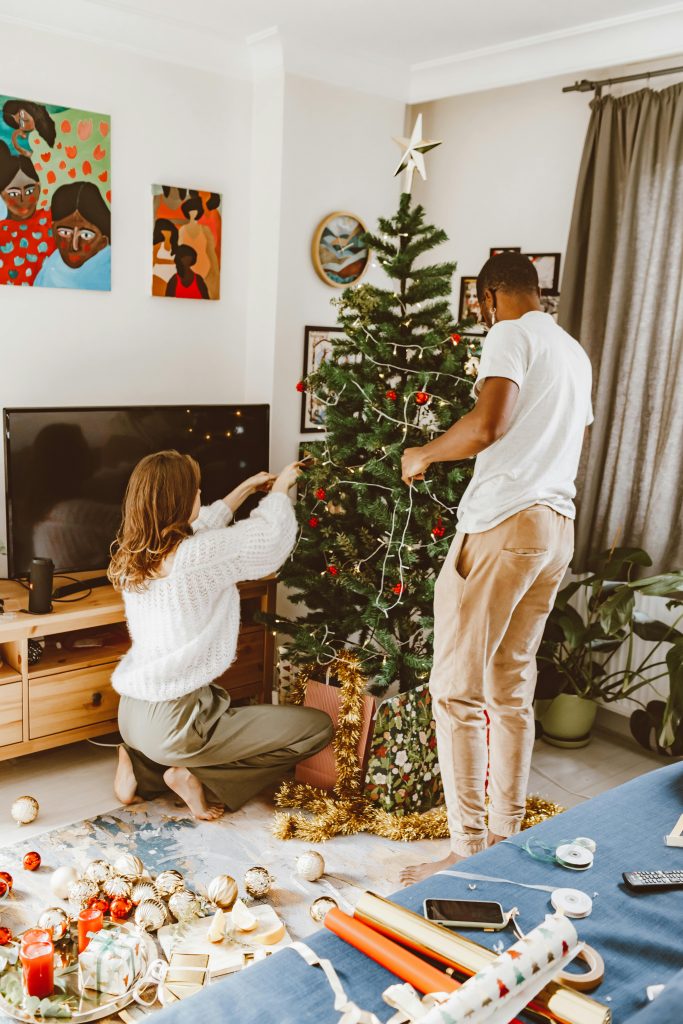Milla Titova, assistant teaching professor of psychology and director of the Happiness and Well-Being Lab at the UW, offers strategies for joy this holiday season.
For journalists
Some people look forward to the holidays all year – the decorations, the food, the get-togethers. Others find them stressful, and still others may not feel up to the festivities at all. Maybe you’ve felt all those emotions at times this season.
But one thing the holidays tend to do, says Milla Titova, assistant teaching professor of psychology at the University of Washington and director of the Happiness and Well-Being Lab, is provide opportunities for social connection. And that, she says, is the No. 1, research-backed way to bring more joy into your life.

Milla Titova, UW assistant teaching professor of psychology
“Social connections, seeing your family, seeing people you care about, connecting with friends, connecting with neighbors, whatever that might be, that is what is really important for our happiness,” Titova says. “It’s not how well-decorated your house is. It’s really about creating those important memories and creating more meaningful social connections during the holiday season.”
Social connection can take many forms, Titova points out, whether large gatherings with family, friends and co-workers, a long-overdue dinner with a friend or even those brief exchanges with strangers. Greet the person you always pass on your morning walk. Make small talk with the friendly cashier. Thank the bus driver. Each momentary interaction can inject a little energy, even a smile, into your day, and that of someone else.
“Research consistently shows that no one wants to talk to strangers; everyone thinks it’s going to be super awkward, and it’s going to be a negative experience,” says Titova. “But then, research also shows consistently that when people actually do it, they feel really good, they feel happier, it contributes to their overall positive emotions.”
Along with introductory and upper-level psychology classes, Titova teaches an undergraduate course, simply titled “Happiness,” which focuses on the subject of her lab’s research. There students can try out strategies, such as striking up a conversation with a stranger, or what Titova considers the other key, research-proven tips for boosting happiness: expressing gratitude and getting outside.
Such actions contribute significantly to our well-being. While about half of happiness can be attributed to genetics, Titova said, 40% is due to intentional steps we can take. The remainder is what’s outside our control: environmental and other external circumstances. Simple strategies don’t solve big problems, Titova says, but they can help us adapt and find nuggets of joy in otherwise hard times.
People don’t always know what makes them happy, Titova says. There’s a difference between something that sparks joy in the short term – say, online shopping – and something that provides sustainable happiness in the long term. That sweater on sale may feel like a triumph, until the feeling wears off, then we think the next purchase will make us happy, until it doesn’t, and so on.
“Research shows that we’re just not very good at using past experiences to inform how we think we will feel in the future. That’s why I recommend trying the methods that have been shown to be effective in research. It doesn’t mean that something is going to work for every single individual, but it’s definitely worth trying,” Titova says.
Not sure how to start incorporating more happiness? Try one thing at a time, Titova says. If you want to practice gratitude more often, you can keep a gratitude journal – a regular log of things you’re thankful for, however small; you can write a thank you note to a long-lost mentor or friend; or simply develop a more deliberate habit around saying “thank you.”
“All of those are ways of practicing gratitude, but they provide different approaches that might be more suitable to one person rather than another,” Titova says. “Try one thing, make it your own, and see how it fits with what you want to do.”
For more information, contact Titova at titovam@uw.edu.
















